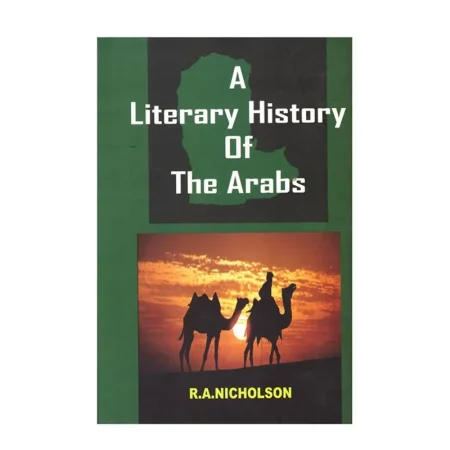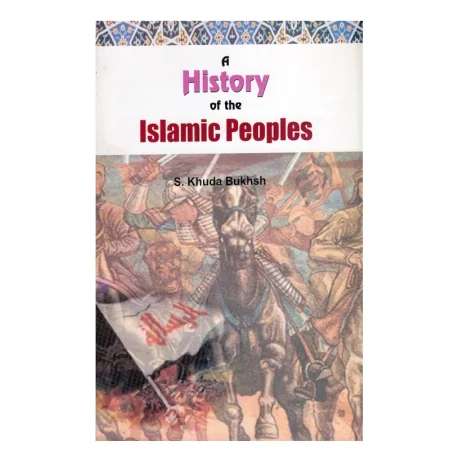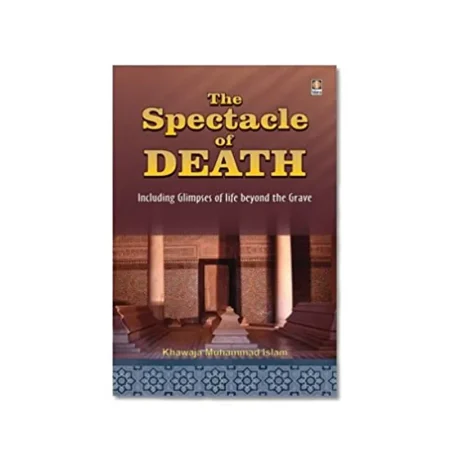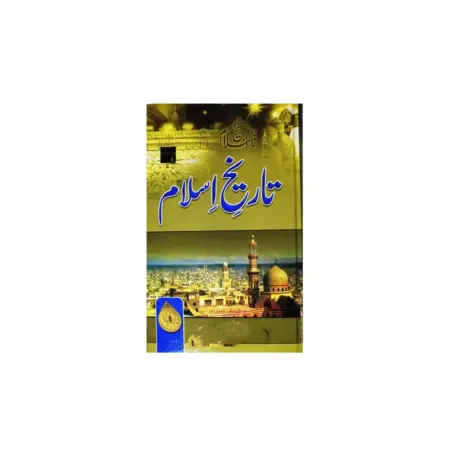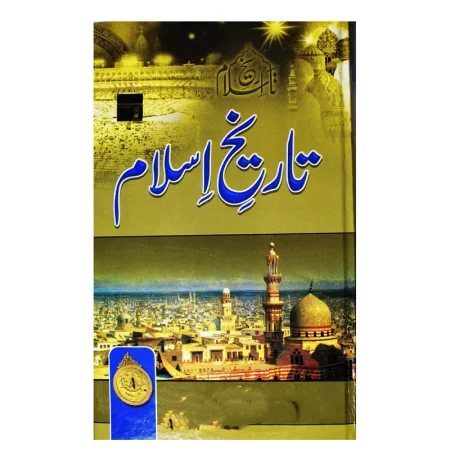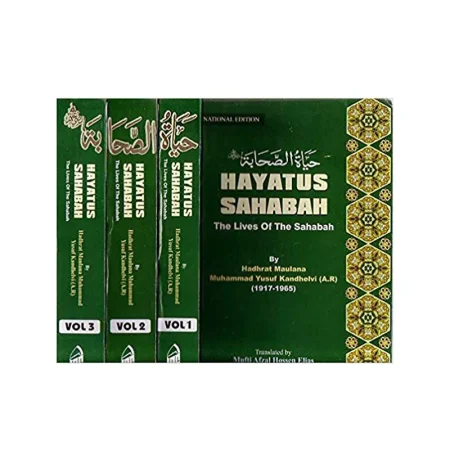Tareekh Ifkaaro Uloome Islami 2 Vol Set Allama Raghib Al Tabbakh Mmi Urdu
₹595.00 Original price was: ₹595.00.₹495.00Current price is: ₹495.00.
- Name: Tareekh Ifkaaro Uloome Islami 2 Vol Set
- Writer: Allama Raghib Al Tabbakh
- Publisher: Mmi
- Language: Urdu

Tareekh Ifkaaro Uloome Islami 2 Vol Set Allama Raghib Al Tabbakh Mmi Urdu
₹595.00Original price was: ₹595.00.₹495.00Current price is: ₹495.00.Request a Call Back
This contact form is available only for logged in users.
- Delivery & Return
How Does The Delivery Process Work ?
- Once Our System Processes Your Order, Your Products Are Inspected Thoroughly To Ensure They Are In Perfect Condition.
- After They Pass Through The Final Round Of Quality Checks, They Are Packed And Handed Over To Our Trusted Courier Partners.
- Our Delivery Partners Then Bring The Package To You At The Earliest Possibility. In Case, They Are Unable To Reach Your Provided Address Or At A Suitable Time, They Will Contact You To Resolve The Issue.
How Are Items Packed ?
We Package Our Products In Corrugated Boxes, Which Are Covered With 3 Layer Protection. Each Individual Product Is Packed In Bubble Wrap While Fragile Items Like Bottles Are Safely Secured With Additional Bubble Wrap. We Pride Ourselves On The Quality Of Our Packaging.What Is The Range Of Locations To Which Daarul Kitab & Islamic Store Ships It’s Products ?
We Shipped Our Products Pan India!My Order Has Been Shipped, How Can I Track It ?
Once Your Order Has Been Dispatched, You Will Receive An Email And SMS With Tracking Details.You Can Track The Status Of Your Order Within 24 – 48 Hours After Your Order Is Dispatched From Our Warehouse.Following Are Some Of Our Trusted Courier Partners: eKart Logistics, BlueDart, Delhivery, Xpressbees, Ecom Express, DTDC & ShadowfaxWhat Is The Estimated Delivery Time ?
It Takes 3-7 Business Days To Deliver The Order Once Order Has Been Dispatched.Though We Keep 95% Of Our Catalog In Our Inventory, Certain Products Need To Be Sourced Directly From The Brand Itself So That We Can Live Up To Our Promise Of Providing Fresh, Non-expired Products.Are There Any Shipping Charges Applicable To My Order ?
We Have Different Shipping Charges For Different Zones Which Start From 60₹ To 100₹ Is Applied To All Orders Below ₹1999, While There Is Free Shipping For All Orders Above ₹1999Note: Please Take A Video/Photos While Opening A Order You Received We Need It If Anything Goes Wrong With You Order Between Journey Of Our Warehouse To Your Doorstep, If You Find Order Is Damaged Or Intact Please Do Not Accept The Order Delivery .
Disclaimer: Any Complaints Related To Product/Delivery Should Be Brought To Our Notice Within 48 Hours From The Time Of Delivery.
Help
Give us a shout if you have any other questions and/or concerns. Email: support@daarulkitab.com Phone: +918755553311 WhatsApp: +918755553311 - Ask a Question

Tareekh Ifkaaro Uloome Islami 2 Vol Set Allama Raghib Al Tabbakh Mmi Urdu
₹595.00Original price was: ₹595.00.₹495.00Current price is: ₹495.00.Ask a Question
This contact form is available only for logged in users.
Tareekh Ifkaaro Uloome Islami 2 Vol Set Allama Raghib Al Tabbakh Mmi Urdu
About the Author: Allama Raghib Al Tabbakh was a distinguished Islamic scholar and historian known for his contributions to the study of Islamic civilization and its intellectual heritage. His works are highly regarded for their scholarly depth and comprehensive analysis.
Book Overview: “Tareekh Ifkaaro Uloome Islami” is a two-volume set that explores the intellectual and scholarly contributions of Islamic civilization throughout history. The book delves into the history of Islamic thought, highlighting the achievements of Muslim scholars, scientists, and philosophers across various fields such as theology, philosophy, science, and literature.
Key Themes:
- Theological Developments: The book covers the evolution of Islamic theology, including the development of various theological schools, such as Asharism, Maturidism, and others. It discusses the contributions of prominent theologians and their impact on Islamic thought.
- Philosophical Contributions: The book delves into the contributions of Muslim philosophers, such as Al-Farabi, Ibn Sina (Avicenna), and Al-Ghazali, among others. It explores their philosophical works and the influence they had on both Islamic and Western thought.
- Scientific Achievements: The book highlights the significant scientific contributions made by Muslim scholars in fields such as astronomy, medicine, mathematics, and chemistry. It discusses the works of luminaries like Al-Khwarizmi, Ibn al-Haytham, and Al-Razi.
- Literary and Artistic Contributions: The book explores the literary and artistic achievements of Islamic civilization, including the development of poetry, literature, and calligraphy. It highlights the works of renowned poets and writers, such as Rumi, Hafiz, and Al-Mutanabbi.
- Educational Institutions: The book discusses the establishment and development of educational institutions, such as madrasas and libraries, which played a crucial role in the dissemination of knowledge. It examines the impact of these institutions on the intellectual growth of the Muslim world.
- Intercultural Exchange: The book addresses the exchange of knowledge between Islamic civilization and other cultures, particularly during the Golden Age of Islam. It discusses the translation movement, where Greek, Persian, and Indian works were translated into Arabic, enriching the intellectual heritage of the Muslim world.
Writing Style: Allama Raghib Al Tabbakh’s writing is characterized by its clarity, depth, and scholarly rigor. He presents a well-researched and balanced account of the intellectual history of Islam, supported by references to primary sources and historical records. His engaging narrative style makes the book accessible to both scholars and general readers.
Conclusion: “Tareekh Ifkaaro Uloome Islami” by Allama Raghib Al Tabbakh is an essential resource for anyone seeking to understand the rich intellectual heritage of Islamic civilization. The book’s comprehensive coverage, detailed analysis, and accessible style make it a valuable addition to any Islamic library. It offers a deep and nuanced understanding of the significant contributions made by Muslim scholars, scientists, and philosophers throughout history.
| Weight | 800 g |
|---|---|
| Dimensions | 10 × 10 × 10 cm |
Related Products
- A Literary History Of The Arabs R.A.Nicholson Adam Publishers (English)
1 in stock
- A History Of The Islamic Peoples ( S. Khuda Bukhsh ) Adam English
2 in stock
- Millat Islamia Ki Mukhtasar Tareekh Vol.3 ( Sarwat Saulat ) Mmi Urdu
6 in stock
1 in stock
- Tareekh-E-Hadeeth Wa Usool-E-Hadeeth ( Dr. Mohd. Tahir Mustafa ) Areeb Urdu
1 in stock
- Hardcover: 487 pages
- Language: English, Arabic
5 in stock
1 in stock
- Tareekh-E-Islam Part 1 (Maulana Muhammad Miyan) Deoband Urdu
10 in stock
- Hayatus Sahaba The Lives Of The Sahabah 3 Volume Set Ibs (English)
1 in stock
- The Alhambra Washington Irving (Goodword) English
2 in stock
3 in stock
- 101 Shining Stars Of Islamic History Activists Of The Present : Book 5 ( Abu Tariq Hijazi ) Ibs English
2 in stock



